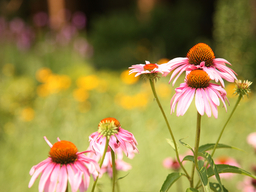Associate Professor Journal Articles Publishing Workshop
On-Ramps to full professor
Location
Fine Arts : 424
Date & Time
September 27, 2019, 9:30 am – 3:00 pm
Description
a. Morning, create your “engine room” (300-500 words) using Nature and other journal materials, 9:30-12. Create a powerful research statement with masterclass materials developed by Nature, the world’s leading multidisciplinary journal with arguably the highest impact factor. Even though it is a science journal, because of its precision on describing research methods and outcomes, it is broadly applicable for scholars working in the humanities, social sciences, pollical sciences, education, and much more. Dr. Sargent has also added supplementary material from other top journals including the American Historical Review, Cell, The American Political Science Review, PMLA, and more with the highest impact in their respective fields. PLEASE NOTE: If you have had previous success with a top journal in your field, be sure to indicate that in the pre-seminar survey so that she can discuss it with you, and perhaps incorporate your article as an example for the group.
The work of the morning increases any scholar’s chances of publishing in top-tier journals, and Dr. Sargent claims to be able improve the odds to 50/50. However, it also has positive implications for grant applications. Grant panels are made up of scholars from a variety of fields, so you will have a chance to strengthen your research statement and faculty bio, ensuring the combination serves you well.
b. Working lunch, 12:15-1:00. Those who wish to may share their results during structured roundtable discussions over lunch. If you prefer to listen in while others present, you may do that as well. These working lunches are a highlight of the workshops, however, so be sure to plan to stay for lunch.
c. Afternoon, expanding your “engine room” to a lean and functional paper. 1:15-3:00 Writing shorter, more focused papers that do less with more impact is a sane way to develop more journal submissions in less time. We’ll discuss politics at the journals, and why writing shorter is such a genius plan. Here are just some of the many topics of the afternoon: (1) How to design your paper so the right peers read it; (2) Why the board of any journal is such an important part of its identity; (3) How to choose a journal when two or more seem appropriate; (4) How to decide whether to have more articles at mid-level or fewer at the top; (5) To co-author or not to co-author; (6) What to do when you are invited to a lower-level journal with work you think has a shot at the top; (7) How and why to contribute your professional time to a journal; (8) Why you should start saying yes to writing peer review and no to writing book reviews (and how to do both diplomatically); and much more.
